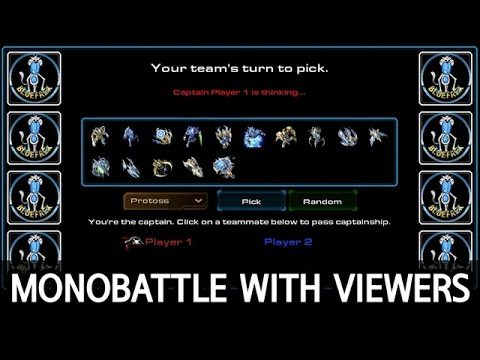Starcraft Heroes – Valerian Mengsk
Words are powerful tools for change. They spark revolutions. They introduce daring new ideas that shape the imagination of future generations. Valerian Mengsk was to learn that words are capable of forever changing a person’s life path.
Planets Starcraft – Braxis
Despite these harsh conditions, Braxis has a long history of settlement that began during the golden age of Protoss expansion. When the Protoss reached the far reaches of the Koprulu Sector, they claimed this frigid planet and founded one of their first colonies, Khyrador.
Starcraft Units – Marine
Marines are the first line of defense for most terran worlds in the Koprulu Sector. In the days of the old Confederacy, the vast majority of Marines were criminals or rebels who underwent mandatory neural rehabilitation. These fearless soldiers, freed from any obligation or ideology, were willing to defend the interests of the Confederacy with their lives.
Starcraft Missions – Autonomy
Since this mission has no time limit, whether you get the achievements or not is just a matter of giving yourself enough time and always fully healing on time. It only gets a bit difficult when finding the fourth Xel’Naga relic, which is located shortly after the start of the section on the right side of the path (1).
Starcraft Buildings – Gateway
The Gateway is a unit production structure for the Protoss, responsible for warping in ground units. Gateways can be warped in by a Probe only within range of the Psionic Matrix, and only if the player controls a Nexus. Like most Protoss structures, the Gateway can only function if it remains within the Matrix, otherwise it becomes unpowered.
Follow us and check out our social media accounts on Twitter, Facebook & YouTube ►
● on Twitter ► esport.directory
● Facebook ► esport.directory
● Youtube ► esport.directory
Starcraft
Starcraft is a turn-based game. The active player receives the obligatory first player token, so it should always be clear whose turn is being played, and especially interesting: StarCraft does not require any dice at all.
To get started, you first have to agree on your faction, then gather all the necessary figures, cards and tokens of your faction (woe betide the game master who only starts sorting now!) and leave the table in the middle free, as this is where the galaxy, i.e. the playing field, is built.
This proceeds similarly to Twilight Imperium.
Each player draws two planet tokens, which they can use to pick their planets from the planet stack. This step is necessary because the planet cards are shaped differently and the tokens are the only way to ensure that the drawing is random.
The starting player then places his first planet in the center of the table and can already build a base – but he doesn’t have to, then he has to do it on his second planet as soon as he lays it out.
Once the first planet is in place, it is the next player’s turn to lay out his first planet and connect it to the previous player’s planet with a navigation route cardboard piece. The last player may lay out both planets at the same time and then it goes in reverse order to the starting player. This way a more or less interconnected galaxy is created.
Finally, Z-axes are laid, which are navigation routes across loose ends, sort of a 3D conversion.
Each player receives the corresponding resource cards for his two planets and then only the event cards are reduced according to the number of players, shuffled and placed on the board. There are three event card phases, which is symbolized by different card backs and should help the game to become faster and more powerful towards the end. Now the game can start.
Each round is divided into three phases.
Starcraft is a turn-based game. The active player gets the obligatory first player token, so it should always be clear whose turn is being played, and most interestingly, StarCraft doesn’t require any dice at all.
To get started, you first have to agree on your faction, then gather all the necessary figures, cards and tokens of your faction (woe betide the game master who only starts sorting now!) and leave the table in the middle free, as this is where the galaxy, i.e. the playing field, is built.
This proceeds similarly to Twilight Imperium.
Each player draws two planet tokens, which they can use to pick their planets from the planet stack. This step is necessary because the planet cards are shaped differently and the tokens are the only way to ensure that the drawing is random.
The starting player then places his first planet in the center of the table and can already build a base – but he doesn’t have to, then he has to do it on his second planet as soon as he lays it out.
Once the first planet is in place, it is the next player’s turn to lay out his first planet and connect it to the previous player’s planet with a navigation route cardboard piece. The last player may lay out both planets at the same time and then it goes in reverse order to the starting player. This way a more or less interconnected galaxy is created.
Finally, Z-axes are laid, which are navigation routes across loose ends, sort of a 3D conversion.
Follow us and check out our social media accounts on Twitter, Facebook & YouTube ►
● on Twitter ► esport.directory
● Facebook ► esport.directory
● Youtube ► esport.directory
Starcraft Gameplay, Starcraft Rankings, Starcraft Release Date, Starcraft Carrier, ‚ Starcraft Cover, Starcraft Skins, Starcraft Videos, Starcraft Video YouTube, Starcraft PS4, Starcraft Platforms, Starcraft Players, Starcraft Team,




